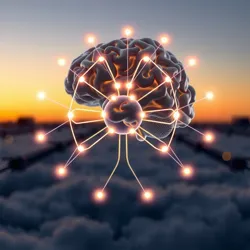Neuroscientists Unveil New Dream Control Algorithm

In a significant advancement in the field of neurotechnology, a team of neuroscientists has announced the development of a new dream control algorithm. This innovative algorithm is designed to tailor dream content to individual preferences, potentially transforming the landscape of mental health treatments and opening new frontiers in the understanding of the subconscious mind.
Development of the Algorithm
The algorithm, known as the Neuro-Dream Modulator, was developed by a collaborative team from the Institute of Cognitive Neuroengineering and the Dreamscape Research Initiative. Utilizing machine learning techniques, the algorithm can analyze an individual's dream patterns and preferences, using this data to craft personalized dream experiences. The development process involved extensive testing and refinement, incorporating feedback from subjects reporting on dream satisfaction and emotional impact.
Applications and Potential
The potential applications of this dream control algorithm are vast, with particular promise in the field of mental health. For individuals suffering from anxiety, depression, or PTSD, the ability to control and influence dream content could offer a form of therapeutic intervention. By guiding dreams towards positive outcomes, patients may experience improved emotional regulation and reduced symptoms.
Moreover, the algorithm could enhance creativity and personal insight through tailored dream scenarios. This could lead to breakthroughs in artistic and innovative fields, as well as personal development. The entertainment industry has also shown interest in this technology, envisioning a future where dreams become a new medium for storytelling and immersive experiences.
Ethical Considerations
The development of the Neuro-Dream Modulator has sparked an ethical debate regarding the manipulation of subconscious experiences. Concerns have been raised about the potential for misuse and the implications of altering natural dream processes. Ethical Debate Rages Over AI Dream Manipulation explores these issues in depth, highlighting the necessity for strict guidelines and ethical frameworks to govern the use of such technology.
The Dream Ethics Council has been established to address these concerns, aiming to create a comprehensive code of ethics for dream manipulation technologies. This council includes experts from diverse fields, including neuroscience, psychology, philosophy, and law.
Future Directions
Looking ahead, the research team plans to expand the algorithm's capabilities through collaboration with the Lucid Dreaming AI Assistants project. This partnership aims to integrate lucid dreaming techniques, allowing users to gain awareness and control within their dream narratives. Additionally, the Dream Data Consortium is expected to provide a wealth of data to further refine and enhance the algorithm's precision and effectiveness.
As the field of dream control technology continues to evolve, the implications for both science and society are profound. Continued research and dialogue will be essential to navigate the opportunities and challenges presented by this groundbreaking innovation.
See Also
- Artificial Intelligence in Dream Manipulation
- Dreamscape Research Initiative
- Lucid Dreaming AI Assistants
References
- Institute of Cognitive Neuroengineering
- Dream Ethics Council
- Dream Data Consortium